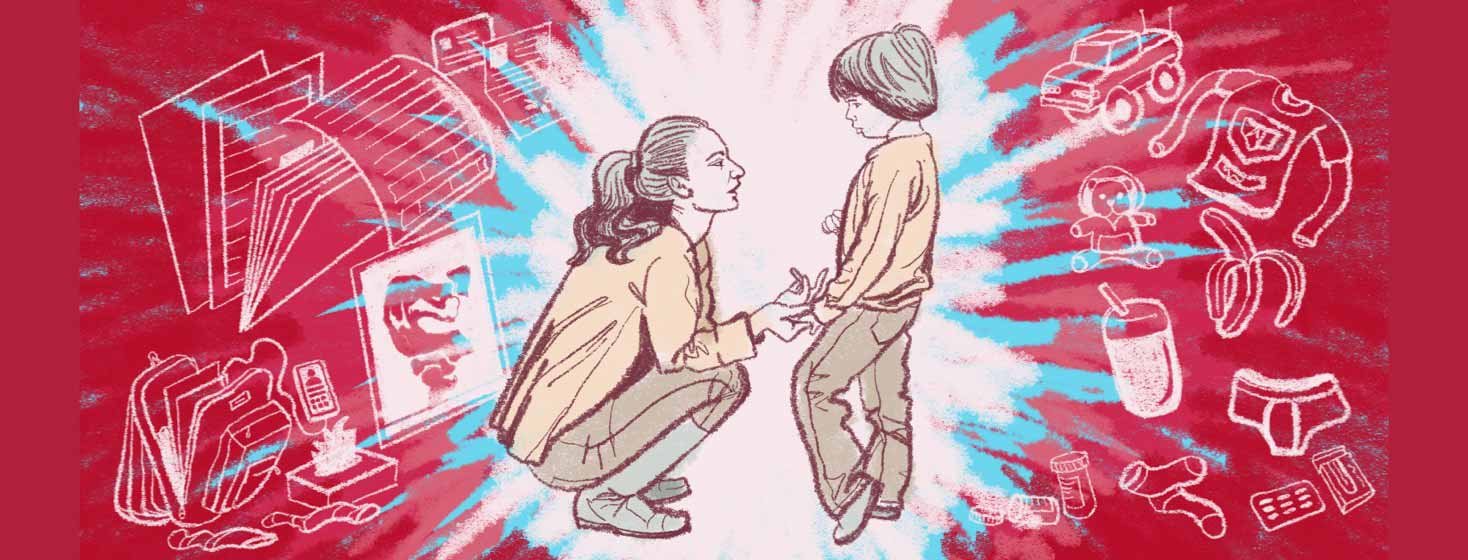Children and Rare Diseases: Tips for Navigating Emergency Care
When your child lives with a rare disease, you expect to make regular visits to the doctor for care. But sometimes the unexpected happens, which could mean a trip to the emergency room. While you cannot prevent emergencies from happening, you can take steps to be more prepared for them in the future.
Choose a hospital to visit for emergency care
Children with rare diseases often need special care that your neighborhood hospital may be unable to offer. Ask your pediatrician which hospital can best meet your child's needs in an emergency. They can help you figure out the closest one to you. Be sure to let your child's school or daycare know the hospital you have chosen. And if you are planning to travel, note which hospitals are in that area.1
If your child is not breathing or responsive, or has blue or pale skin, take them to the nearest emergency room immediately. Contact your pediatrician before or on the way to the hospital. They can reach out to the emergency department to help arrange a treatment plan.1
Organize your child’s medical records
Time is of the essence in an emergency, and you do not want to spend precious minutes looking for paperwork. Instead, gather everything you need now. That way, you will have it on hand if an emergency arises. Keep records of your child's:1,2
- Diagnoses
- Surgeries (including surgeon names and dates)
- Lab results
- Medical images
- Prescription and non-prescription medicine (including dose and how often your child takes it)
- Doctors’ names and contact information
- Vaccination records
Pack an emergency bag to bring to the hospital
Taking certain things with you to the hospital will help your visit go more smoothly. Make sure to grab:1,3
- Your driver's license or other ID
- Your child's health insurance information
- Your child's medical records
- List of your child's allergies (food and medicine)
- Money for the vending machine or pre-packed snacks
- Cell phone charger
To help keep your child comfortable at the hospital, bring:1,3
- Extra diapers and wipes
- Formula and bottles or sippy cups
- A change of clothes
- Snacks for your child (but check with the doctor to make sure it is okay for your child to eat)
- Games and toys
- Electronic devices
- Favorite blankets or stuffed animals
Consider storing some of these items in a "go bag" that you always keep packed, so it is ready to go when an emergency strikes.
Gather information for your arrival at the hospital
When you arrive at the hospital, doctors, nurses, and other healthcare staff will have lots of questions about your child's condition. Be prepared to provide information about their symptoms (both related and unrelated to their rare disease) and how long they have had them. Emergency room staff will also want to know about any:1
- Surgeries
- Unusual lab or imaging results
- Recent changes to medicine or other treatments
It is not easy to think about, but your doctor also may ask about end-of-life decisions. It helps to consider how you will answer those questions in advance.1
Prepare your child for an emergency room visit
It is normal for your child to be scared or uncertain during a medical emergency. As a caregiver, it is up to you to guide them through this tough time. Here are some tips:1,2
- Talk to them. Let your child know why they need to go to the emergency room and what to expect. This will help ease their anxiety.
- Stay calm. Kids are sensitive to adults' emotions and actions, so try your best to stay composed.
- Comfort your child. Encourage them through words and hugs. Take their mind off of what is happening with games, toys, or books.
- Allow your child to express themselves. Older kids should be able to take part in some of their medical and treatment decisions. Give them the space to voice how they are feeling.
Have you ever had to navigate an emergency room visit with a child? What happened? Do you have any tips to share with others? Tell us in the comments below.

Join the conversation